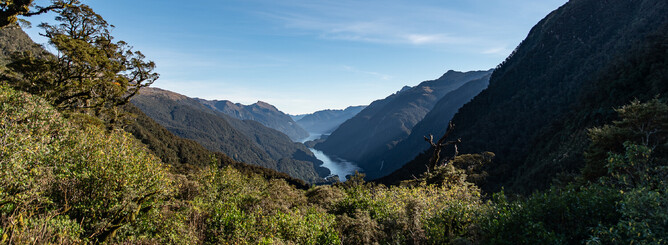A big hello to everyone around our Southland catchment group community.
We hope you are managing to get through the Covid-19 situation and the other uncertainties around us all in reasonable shape.
The global, national and local circumstances we all find ourselves in have changed markedly since Thriving Southland was launched in December.
While we all recognise the damaging impact Covid-19 has had across many communities and industries, it has reasserted the importance of farming and food production. The Government has stated that primary producers’ innovation and collective effort will form an important part of the economic recovery from Covid-19.
Yes, there is some uncertainty around returns, but that is nothing new to most of us.
The bigger picture is that our food production story is going to be more important than ever.
We’ve always lived in a changing world and it will continue to change – and if we can understand the opportunities this presents we’ll be in a strong position.
This is where Thriving Southland fits.
The good news is the project is proceeding as planned, with the Ministry for Primary Industries looking at its Productive and Sustainable Land-Use package as an important part of supporting primary producers to continue doing what they do best – producing world-class food and fibre.
The four extension platforms funded by the project include farm systems and farm profitability, rural community and farmer wellness, and managing nutrients for water quality and greenhouse gas emissions.
The New Zealand Landcare Trust, with Sarah Thorne as local co-ordinator, have worked with you as catchment groups, to build a region-wide catchment group model of more than 20 groups in Southland - something that everyone involved can be justifiably proud of.
Catchment groups are community groups – they are becoming a hub for rural communities in Southland.
In July, Thriving Southland, as an independent incorporated society, officially picks up this role – and we want to be able to provide continuity, to build on the achievements to date by providing increased support for catchment groups, and work alongside Primary Industry Stakeholders, NGOs and Local Government.
We’ve done a bit of homework.
From August through to October 2019, we held workshops around Southland with Community Catchment Groups to find out what on-farm issues were on your minds – the main themes were:
There’s a lack of information around requirements for on-farm change
There’s uncertainty around where the goalposts will be placed
That farmers just want to know what to do
That farmers value getting advice from successful farmers and want to see catchment groups helped and supported.
So what’s been happening since December?
- We continued to spread the word about the project and sought feedback at the Southern Field Days at Waimumu.
- We briefed the Southland Catchment Forum on progress on February 21. At this meeting, catchment leaders reminded us that this is not just about farming – it speaks to everyone living in the Southland region – and a sense of reconnecting as a community.
- A widely representative Thriving Southland board has been established, featuring catchment group leaders and people with proven expertise from across the primary sector in the region.
- We are progressing our work plan with funding from MPI and establishing our team to support you and working towards developing the next stage with your input.
- We have rejigged our strategic engagement plan for 2020 in light of Covid-19.
- We are continuing to listen to your feedback and ideas.
The plan for 2020 is about getting some runs on the board by providing value to catchment groups through catchment coordinators, continuing to build relationships, and beginning to set the foundations for future plans.
Thriving Southland will not replace or overlap existing primary sector initiatives in the region but rather offer farmers more support to take advantage of what’s on offer.
Every catchment and every farm have different challenges and opportunities – we all want to understand our options and be confident to make changes and take advantage of opportunities. To provide support for farmer to farmer learning, support catchments to lead discussion and action, look at how farmers can improve farm systems to meet community and market needs, and improve water quality where needed.
We know how busy everyone is, so the only thing we’d ask for you to do at the moment is think about projects you’d like to push ahead with on your farm and in your Catchment and Community.
The Minister of Agriculture is eager to hear about any local employment opportunities that could contribute to social, environmental, and economic outcomes, which also facilitate the Covid-19 recovery.
If you do have any farmer/community-based and led projects or ideas that could contribute and that we might be able to support you with, please don’t hesitate to get in touch with us.
If you could get back to us with any initial ideas/projects by May 14 it would be much appreciated (contacts below).
Thanks for your time
Kind regards,
Ewen Mathieson and Lynden Prebble
If you’d like to get in touch with us please contact:
Richard Kyte
richard@thrivingsouthland.co.nz
Sarah Thorne (NZ Landcare Trust Project Co-ordinator Southland)
sarah.thorne@landcare.org.nz

